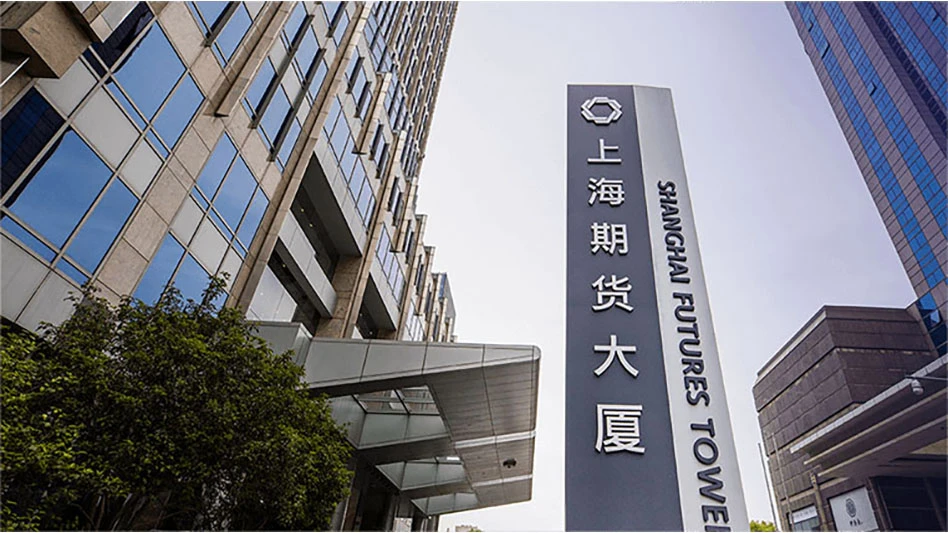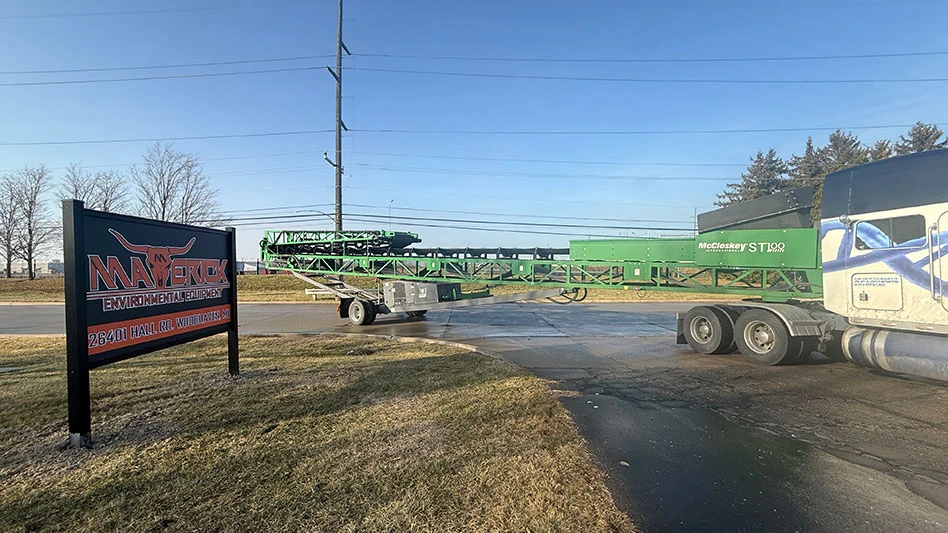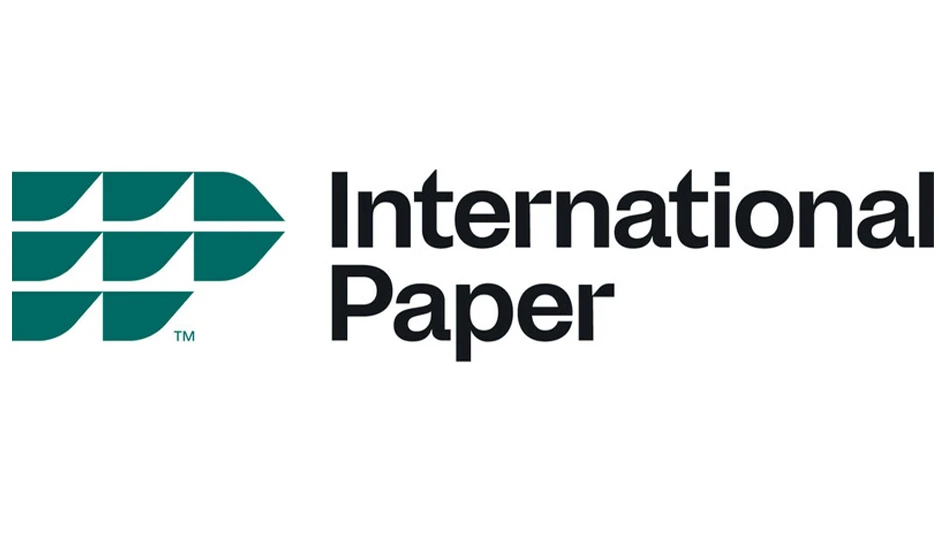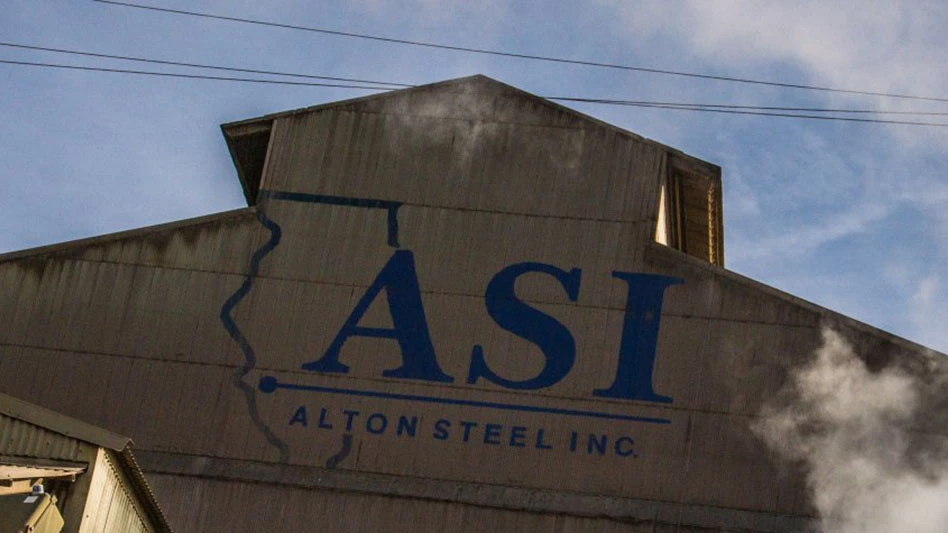As one of a handful of information management companies with a global presence, Recall is able to leverage its expansive footprint to attract a number of corporate and financial clients with locations and consistent service around the world. Rather than rely on its size alone to attract and retain clients, Recall, headquartered in Norcross, Ga., says it continually seeks to improve its processes and technology.
To assist in this effort, the company employs a quality and business improvement program called IMPACT, which, according to the Recall Web
site, "drives Six Sigma, Lean and Project Management methodologies for all processes and projects to assess, evaluate and improve business operations that guarantee performance predictability and efficiency."
Online Sidebar - Minding Its Steps
Click here to view online only sidebar
Recall refers to its culture as "customer-centric" and measures its success by four criteria: consistency, accuracy, reliability and efficiency, or C.A.R.E, and the "Perfect Order" promise. Perfect Order is the company’s pledge "to deliver the right items to the right people at the right time, every time." According to Recall, it holds itself accountable in these areas by sending regular reports to its clients.
KEEPING COUNT
If Recall’s growth is any indication, the company must be succeeding at caring for its customers. The company, which is a business unit of Australia-based Brambles, was established in 1999 through the acquisition of a number of records management companies. In the years since, Recall has grown to employ more than 4,600 associates at more than 300 facilities in more than 20 countries.
Recall supports a diverse customer base numbering nearly 80,000 clients, many in the banking and finance, health care, retail, insurance, legal and government sectors, which the company terms as "transaction-intensive market segments."
Recall’s services include document management solutions (DMS), such as secure indexing, image capture, storage and retrieval of physical and digital documents; secure destruction services (SDS), which include the destruction of documents and items of intrinsic value to its clients; and data protection services (DPS), such as secure off-site storage, rotation and recovery of computer backup data.
According to figures available through Brambles, document management services accounted for 66 percent of Recall’s total sales of $650 million in 2007, while secure destruction services accounted for 23 percent and data protection services accounted for 11 percent of the company’s total sales. The overall sales figure for 2007 represents a 13 percent increase from the 2006 figure of $566 million and a 40 percent increase from 2003 sales of $388 million.
Regionally, the Americas are Recall’s largest market at 47 percent, with Europe coming in second at 26 percent followed by Australia and New Zealand at 24 percent.
According to Recall’s Dan McFarland, manager of the South Central region of North America, the company has opportunities for continued growth around the globe. "The work we do is driven by changes in regulations," he says. "External factors and controls are placing additional requirements on our clients."
A LIFE-CYCLE APPROACH
Jim Congrove, global vice president of business improvement for Recall, says corporations are looking at document management differently because of the growth in regulations designed to safeguard personal information and the mounting threat of identity theft.
Because of this, Congrove says it is important for Recall to be able to provide a life cycle approach to information management. "The entire time a document is with us, we can account for it," he says. "Recall has processes in place that maintain and control that information in a closed-loop environment. It gives our clients peace of mind."
By offering document management, data protection and document destruction services, McFarland says Recall is able to provide its clients with solutions as opposed to simply offering a service. "If you can provide support, education and retention planning, you can give guidance and support through to the end of the information’s life cycle," he says. "One of our responsibilities is to help educate and provide guidance to clients that may not have that core competency."
Recall’s focus on developing standard operating procedures throughout the company helps to ensure that its clients can rely on the same standard of service, regardless of location. As a company that has grown by acquiring a number of smaller companies, this focus on standardization is especially important.
"We don’t really want independent businesses out there running under the Recall name," Congrove adds.
Therefore, following an acquisition, Recall quickly implements its software and standard operating practices (SOPs) to ensure the company provides consistent services across all of its locations, he says.
THE DRIVING FORCE
Recall’s multi-national reach allows the company to attract clients with multiple locations throughout North America and internationally. The company’s focus on standardization means that clients receive the same level of service, regardless of location.
Mitzi Ott, SDS optimization manager, Recall North America, says that from
Norcross, Ga.-based Recall operates a number of purpose-built document storage facilities that employ state-of-the-art technology. Those that contain 1 million or more cartons Recall refers to as "mega-centers." According to the Brambles Web site, one of Recall’s largest mega-centers is at Greystanes in Sydney, Australia The facility covers 72,000 square feet and has racking that reaches more than 86 feet high. At full capacity, the Sydney mega-center holds 6.6 million cartons of documents. Recall’s mega centers are designed to optimize document management services, according to Australia-based Brambles Ltd., Recall’s parent company. Recall operates mega-centers on five continents.
the customers’ perspective, partnering with a vendor like Recall "provides the consistent service that they are looking for across their footprint." She continues, "It is easier to manage and drive that kind of compliance in your own organization when your vendor has that footprint capability."
Supersized!
Ott says Recall emphasizes continuous improvement, adding that the company is always looking for ways to strengthen its document destruction services by reducing the amount of time it takes to destroy client information.
Recall’s focus on continuous improvement through Six Sigma and Lean means the company is always looking for ways to improve its processes to increase efficiencies. Part of this process involves regular reviews of the company’s SOPs.
Congrove says Recall seeks to drive best practices throughout the company and measures its performance using common metrics. "One of the great things about being a structured company is that we can roll out best practice improvements quickly," he adds.
As the vice president of global business improvement, Congrove is responsible for improving Recall’s operational processes, performance and security on a global basis. He came to Recall nearly a year ago after spending 10 years at CHEP, another Brambles company. As Brambles companies, Recall and CHEP focus on continuous improvement, people and talent management, customer satisfaction and security, Congrove says.
"Security is really a continuous improvement mindset," he says of Recall. "We challenge our employees every day to find improvements."
In line with Recall’s continuous improvement ethic, Congrove says, "We have standards for technology, employee training and processes and are bringing people in who are subject matter experts."
Recall uses its Perfect Order promise and its ReQuest system to track its performance and to measure how effectively the company is responding to its clients’ service requests.
Recall introduced ReQuest in late 2006. ReQuest is a Web-based interface through which clients can make service requests, track their information in real time and generate a variety of reports.
"When we set up a customer in our system, we have the ability to track every work order our customer requests," Congrove says.
Recall uses ReQuest to monitor how quickly and effectively the company responds to its customers’ demands. ReQuest also allows Recall’s clients to measure their compliance with various regulations. Congrove says the system provides true transparency for Recall’s clients as well as business metrics Recall can analyze with the goal of continuous improvement in mind.
As global director of IT business solutions for Recall, Dave Hudson had a critical role in the development of the ReQuest system and in all of Recall’s technology efforts, helping to align the company’s business strategy with its IT strategy.
Hudson says compliance is the primary factor driving the SDS business segment. "People want to have more visibility around the life cycle of their documents, around the amounts, the volumes, and around when things are destroyed. They want more assurance that things were handled securely and efficiently," he says. "That is where our value-add comes in. We can really give our customers peace of mind and take that risk, that worry, off their hands and manage it for them."
Recall is looking at how technology can enhance its operations and its customers’ experiences. "We’re working to incorporate a lot of simple solutions through technology that will simplify what we do and will reduce cost to our customers and increase security," Ott says. "That is a big push in Recall right now."
TECHNICALLY SPEAKING
As part of the company’s technology initiative, Recall’s Document Management Solutions Mega-Center in Northborough, Mass., introduced radio frequency identification (RFID) technology for the identification, inventory and tracking of its customers’ document and electronic data archives in early 2007.
Hudson says RFID technology drives two main efficiencies: allowing Recall to find customer information more quickly and to provide more audit information to its clients. "It’s about being more efficient and providing better data," he says.
While RFID tags can be more expensive than bar coding from a materials perspective, Hudson says the efficiencies Recall gains and the detailed information it can provide customers more than outweighs the additional material costs.
In addition to keeping in step with the latest technology, Recall also spends a significant amount of time anticipating its customers’ future needs. "We are always looking for the next need," Ott says. "What is the next destruction and risk mitigation need that is going to be coming and how can we prepare through our own operating platforms, our systems, our personnel development to be prepared for what’s coming?"
Recall will continue to expand its services, Congrove says, going up further in the information life cycle.
In Ott’s estimation, the market outlook for the information management industry in general and Recall in particular is strong. "I think the market is going to continue to be primed for this," she says of information management services. "I don’t see it going away. There is always going to be something that somebody doesn’t want anyone else to know."
To continue responding to this need as efficiently as possible, Recall will continue to analyze and improve its processes based on the metrics it collects, focusing on the development of best practices and its goal of consistent service. n
The author is editor of
Secure Destruction Business magazine and can be contacted at dtoto@gie.net.

Explore the March 2008 Issue
Check out more from this issue and find your next story to read.
Latest from Recycling Today
- Stadler equips Spanish MRF
- SSAB finishes 2025 with decreased revenue
- Vecoplan appoints CFO
- Aurubis raises full-year forecast
- Levitated Metals adds LIBS sorting technology
- Redwood Materials closes on $425M in Series E financing
- Updated: Wieland Chase expands northwest Ohio facility
- Recovered paper traders report lukewarm market





